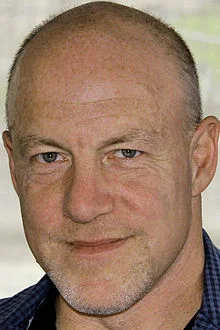Robert Louis Stevenson (1850 - 1894)
from his novel Treasure Island
from his novel Treasure Island
Not that the concept of this post is to extol pirates or piracy, because it is not. Simply stated, the point of this post is the idea of partnership.
Who would Long John Silver want to accompany him on his journeys, no matter what the journey is about?
He would want those who share is visions.
He would want those who he can work with.
He would want those who have what skills he doesn't.
He would want those who can bring symbiosis to the table, where one plus one is more than two.
He would want those who add their candle light to the other candles and make the fire brighter for all.
He would want those who he can work with.
He would want those who have what skills he doesn't.
He would want those who can bring symbiosis to the table, where one plus one is more than two.
He would want those who add their candle light to the other candles and make the fire brighter for all.
So, as to partnerships, this was suggested: "To get along in business, the partners should have different skill sets
that are complementary," said Issamar Ginzberg, a Brooklyn-based
strategy adviser to entrepreneurs. "Two people who are good with numbers
but bad at deadlines would be horrible. When they mismatch, they make a
much better pair. … (As) in marriage, opposites attract."
What are some famous free enterprise partnerships? The ones where opposites attracted, or symbiosis brought more to the whole?
- Ben Cohen and Jerry Greenfield - long-time friends who brought different angles to the same love for ice cream. Almost everyone has taken a bite of their ideas.
- Bill Hewlett and David Packard - electronics techs who combined curiosity and management, beginning in a garage. Things added up very nicely.
- Orville and Wilbur Wright - brothers whose mechanical abilities could be applied to another idea and industry. We all know what happened then. Even though death broke up the partnership, their business took off and continues today.
- Warren Buffet and Charlie Munger - one, the value hunter, combined with the other, the inter-disciplinary thinker, learned to pay fair prices for good products. The candle light from each has made the combined light much brighter.
- Bill Gates and Paul Allen - combined computer genius aided by the negotiating genius of one with the innovation genius of the other. Again, long-time friends. Whose life haven't they influenced?
- Steve Jobs and Steve Wozniak - two friends early in life bringing computer/electronic abilities together to take a bite from the same huge Apple.
- Jerry Yang and David Filo - they found the internet rodeo could be corralled and organized and made keywords a part of the Yahoo of life.
- Sergey Brin and Larry Page - two students who were Google eyed, joined for conversational clashes, which spurred a friendship, and then a partnership, with one having the ability to mine for data and the other the ability to place a value on how some things are perceived by many as important.
Often one alone in a business endeavor is not enough to make it happen. But in the right environment, a free-enterprise environment, one conducive to innovation and expansion, capitalism can make the combined effort more expansive and more influential than anyone had previously experienced.
And sometimes, just sometimes, we get to take a bite of a free sample - here I sampled the Triple Caramel Chunk. Alas, there is no such thing as a free lunch, or even a free sample. In this case the factory tour did have a fee attached!
People partnered with free enterprise make things happen.




